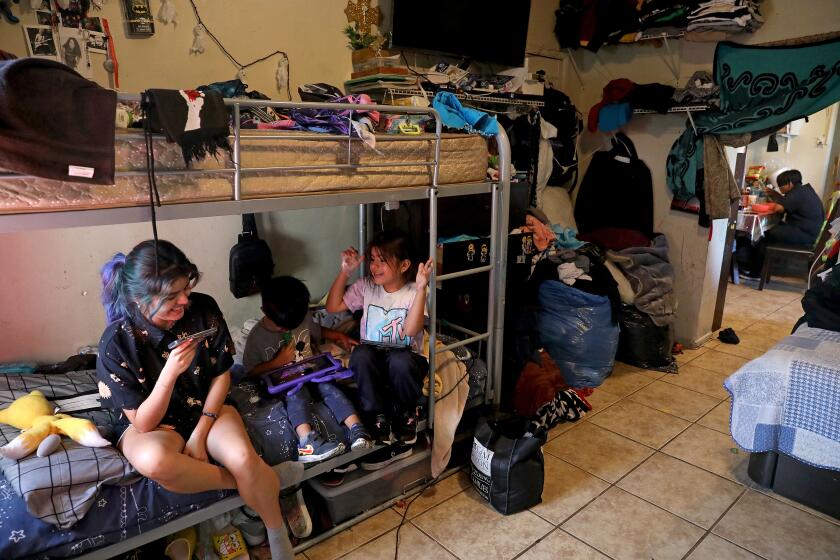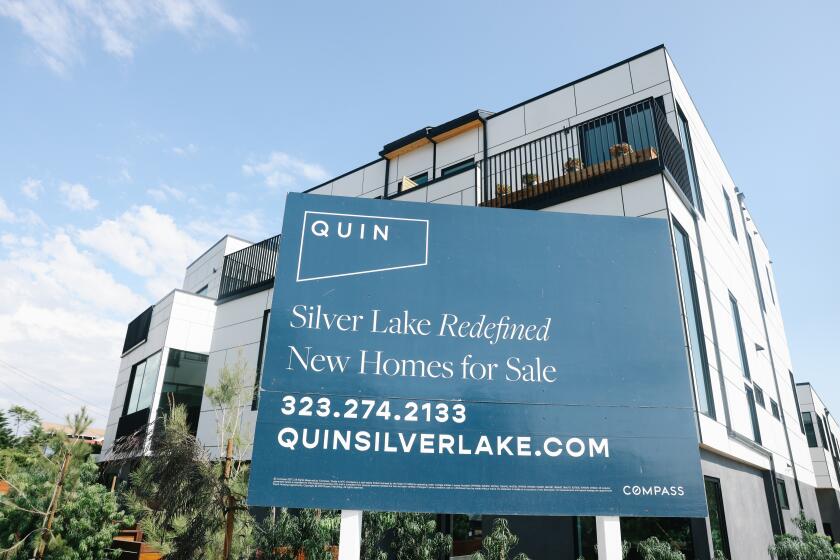Overpriced ‘setup’ houses are used to sell other nearby homes
WASHINGTON — In the real estate brokerage field they’re often known as “setups” or “pinball” homes, and this spring’s improving conditions in some markets could be stimulating more of them.
A setup or pinball property is a house listed with an unrealistically high asking price that pulls in lots of visits by agents and shoppers, but no offers. The problem is this: Real estate agents, including even the listing agent, are using the overpriced house as a negative example to sell similar homes in the area that carry lower asking prices.
“It’s like a pinball machine,” said Debbie Cook, an agent with Long & Foster Real Estate in Silver Spring, Md. The “setup” is the foil — the house that agents show clients to make other, more realistically priced listings look better. Maybe the sellers — encouraged by reports of rising sales and low mortgage rates — insisted on the aggressive asking price and wouldn’t list for anything less. Or maybe the sellers’ agent, not wanting to lose the listing, didn’t fully brief them about what the house could command in today’s conditions.
Whatever the specifics, such houses tend to see heavy foot traffic but go nowhere until the sellers drop the asking prices, usually by significant amounts. Before then, however, they may be used without the sellers’ knowledge to market other houses. Since no one seriously expects them to sell at their original asking price, agents are happy to exploit the overpricing to facilitate other sales.
“We’re definitely seeing it,” said Sandy Nichols Acevedo, an agent at Prudential California Realty in Oxnard. “Some people think they can go higher now because the market seems to be doing better.”
Joe Manausa, owner-broker at Century 21 First Realty in Tallahassee, Fla., who wrote about the phenomenon on Active Rain, a Seattle-based industry blog with more than 220,000 members, offers this hypothetical example: “If two very similar homes are near each other, with one priced at $250,000, and the other at $280,000, the higher-priced home is often shown first. Then the real estate agent says, ‘If you like this home at $280,000, you are going to love the home down the street at $250,000!’”
Bill Gillhespy, an agent in Fort Myers Beach, Fla., has a real-life example: He has a listing on the 14th floor of a luxury condominium project overlooking the Gulf of Mexico. The asking price is $450,000. There’s a unit on the same floor with similar views, similar square footage and layout, but with a more updated decor, that is listed for nearly $150,000 more. When Gillhespy is asked by another agent or a prospective buyer to see his unit, he often says, “Let me first show you a unit just down the hall. It’s one of the nicest in the entire building.” The higher-priced model shows well, but shoppers immediately remark on the $150,000 difference “and they can’t see how it’s justified.”
Perrin Cornell, a broker at Century 21 Exclusively in Wenatchee, Wash., says some sellers in the mid-to-upper price brackets in his area “are exuberant” that we’re finally out of the recession and are tempted to disregard agents’ more sobering recommendations on pricing.
What happens to such listings? “Unless we’re using it for a setup,” Cornell said, “we stop showing it” until the seller agrees to lower the price to a sensible number.
But as a matter of principle and ethics, should realty agents accept listings from homeowners who refuse to listen to reason? Manausa is adamant that they should not.
“If you list a property at a price you know will not sell,” he said, “you are misleading the seller. Effectively you are saying, ‘I don’t think it will sell, but I’ll put my name on anything hoping to get paid.”
Acevedo agrees that agents have a fiduciary duty to educate even the most headstrong owners about sobering market realities, but has a compromise solution: Take the listing but require the seller to sign a contractual agreement requiring an automatic price reduction to a specified level if the house doesn’t sell in the first two to three weeks.
Bottom line here for owners thinking about selling in modestly improving markets: Get as much information as you can about sale prices of comparable houses in your area. Talk to multiple realty agents before listing. Sure, you can try pushing a little on price, but if you go overboard, you risk becoming the unwitting setup, the pinball, the out-of-touch competition everybody else loves to visit.
Distributed by Washington Post Writers Group.





